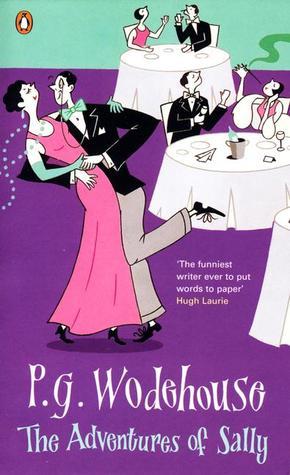What do you think?
Rate this book


272 pages, Paperback
First published January 1, 1922
Like so many alert and active-minded girls, she possessed in a great degree the quality of interesting herself in - or, as he brother Fillmore preferred to put it, messing about with - the private affairs of others.Basically, Sally just wants to see the people around her - mainly the ones she feels closest to - being happy Her own happiness is something she spends less time on.
"... And she's got brains enough for two, which is the exact quantity the girl who marries you will need."A sub-focus of the story unravels how Sally's altruism may be the cause of her undoing - but she has too much pluck and nerve to be undone. Not that she understands herself completely - who ever does; and Sally can't seem to register when she's genuinely in love... which is rather hilarious. In various ways, three men play with her heart... but it will take a pure heart to win hers.
"Like everyone who had ever spent any length of time in the house, she had strong views on Toto. This quadruped, who stained the fame of the entire canine race by posing as a dog, was a small woolly animal with a persistent and penetrating yap.
"If there is one thing rottener than another in a pretty blighted world, one thing which gives a fellow the pip and reduces him to the condition of an absolute onion, it is hopeless love." (75)I was ill and did what I always do when I'm feeling under the weather—I turned to Wodehouse. Thankfully, I still have some works left to read, even if I am slowly beginning to reach the end of the man's splendiferous oeuvre. The Adventures of Sally is an interesting novel, noticeably different in tone from much of Plum's other work. It is more serious; or, differently put, it is less light-hearted. There are real struggles here—there is heartbreak and failure, which is not all redeemed by the end of the novel. An adjective actually came to mind that I don't think has ever suggested itself before while reading Wodehouse: bleak. Perhaps it was my own state of illness that picked up on and amplified this. All the same, there were good parts to the novel, and I enjoyed it in end.
"'I've missed you dreadfully,' she said, and felt the words inadequate as she uttered them.
'What ho!' said Ginger, also internally condemning the poverty of speech as a vehicle for thought." (257)